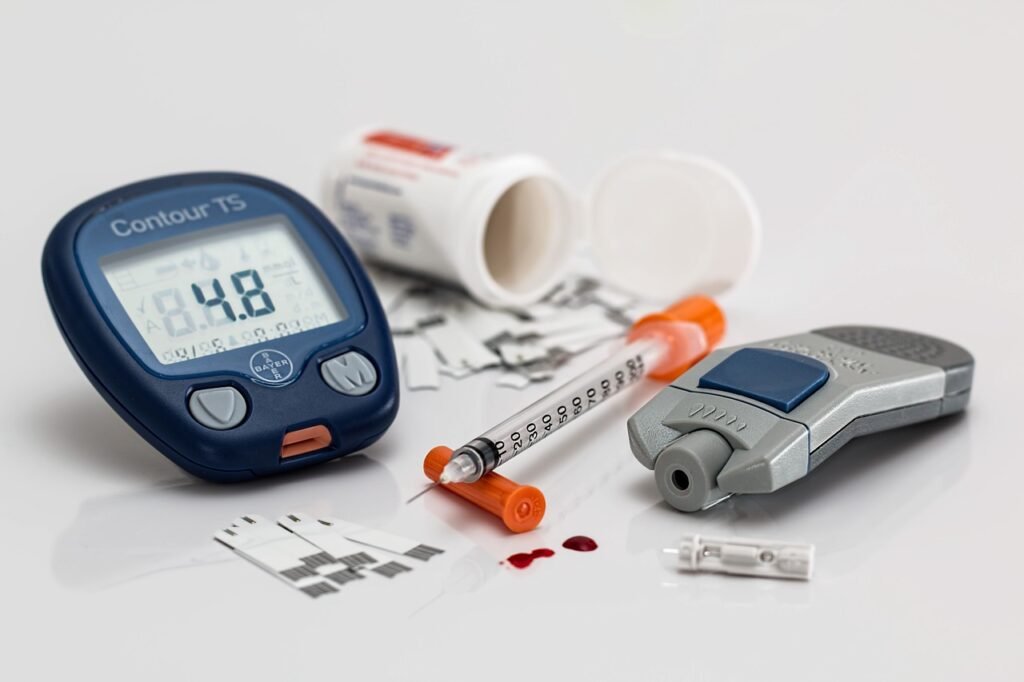Meta Description: Explore the intricate web of Causes Of Type 1 And 2 Diabetes development. From delving into diabetes symptoms to deciphering the differences between type 1 and type 2 diabetes, this comprehensive guide sheds light on the causes of diabetes. Gain insights into the role of continuous glucose monitoring, the significance of a diabetic diet, and the importance of a reliable blood sugar monitor in the quest for effective diabetes management.
Table of Contents: Causes Of Type 1 And 2 Diabetes
- Introduction
- Diabetes Symptoms: Early Indicators
- Type 1 Diabetes Causes: Unmasking Autoimmunity
- Type 2 Diabetes Causes: Lifestyle and Genetics
- Shared Factors Contributing to Diabetes
- Continuous Glucose Monitoring: A Technological Insight
- The Impact of Diabetic Diet on Diabetes Causes
- Choosing the Right Blood Sugar Monitor
- Frequently Asked Questions
- Conclusion
Unveiling the Enigma: Understanding the Causes of Diabetes

Diabetes, a prevalent and complex health condition affecting millions worldwide, has multifaceted causes. This comprehensive guide seeks to unravel the mystery behind diabetes development, exploring symptoms, types, and the interconnected factors contributing to this prevalent condition.
Diabetes Symptoms: Early Indicators
- Increased Thirst: One of the initial signs of diabetes is excessive thirst.
- Frequent Urination: Diabetes often manifests with increased frequency of urination.
- Unexplained Weight Loss: Sudden weight loss without apparent cause can be a symptom of diabetes.
- Fatigue: Persistent fatigue is another common indicator of diabetes.
Early recognition of these symptoms is crucial for timely diagnosis and effective management, regardless of diabetes type.
Type 1 Diabetes Causes: Unmasking Autoimmunity
- Autoimmune Response: Type 1 diabetes results from the immune system mistakenly attacking and destroying insulin-producing cells in the pancreas.
- Genetic Predisposition: Genetic factors play a role, making individuals more susceptible to autoimmune responses.
- Environmental Triggers: Certain environmental factors may trigger the autoimmune response leading to type 1 diabetes.
Understanding the intricate interplay of these factors is essential for comprehending the causes of type 1 diabetes.
Type 2 Diabetes Causes: Lifestyle and Genetics
- Insulin Resistance: In type 2 diabetes, insulin resistance occurs, where the body’s cells do not respond effectively to insulin.
- Lifestyle Factors: Sedentary lifestyle, poor diet, and obesity contribute significantly to the development of type 2 diabetes.
- Genetic Influence: Family history and genetic predisposition increase the likelihood of type 2 diabetes.
The combination of genetic and lifestyle factors underscores the complexity of type 2 diabetes causes.
Shared Factors Contributing to Diabetes
- Genetic Susceptibility: Both types of diabetes have a genetic component, influencing an individual’s predisposition to the condition.
- Obesity: Excess body weight, especially around the abdomen, is a common risk factor for both type 1 and type 2 diabetes.
- Inactive Lifestyle: Lack of physical activity is a shared risk factor that can contribute to the development of diabetes.
Recognizing these shared factors is crucial for developing comprehensive preventive strategies.
Continuous Glucose Monitoring: A Technological Insight
- Real-time Monitoring: Continuous Glucose Monitoring (CGM) provides real-time data on blood sugar levels.
- Immediate Feedback: CGM allows for immediate adjustments to insulin, diet, and lifestyle based on current glucose levels.
- Proactive Management: Continuous monitoring empowers individuals to proactively manage their diabetes, reducing the risk of complications.
The integration of CGM into diabetes management adds a technological layer to understanding and addressing the causes of diabetes.
The Impact of Diabetic Diet on Diabetes Causes
- Balanced Nutrition: A diabetic-friendly diet focuses on balanced nutrition with an emphasis on whole grains, lean proteins, fruits, and vegetables.
- Carbohydrate Management: Monitoring and managing carbohydrate intake is crucial for blood sugar control.
- Meal Timing: Consistent meal timing helps regulate blood sugar levels, contributing to overall diabetes management.
A tailored diabetic diet plays a significant role in mitigating the causes and effects of diabetes.
Choosing the Right Blood Sugar Monitor
- Accuracy: Selecting a blood sugar monitor with high accuracy is essential for reliable readings.
- Ease of Use: User-friendly features make monitoring accessible and convenient for individuals with diabetes.
- Portability: Compact and portable monitors facilitate on-the-go testing, ensuring continuous monitoring.
Choosing an appropriate blood sugar monitor is a crucial step in actively managing diabetes causes and effects.
Frequently Asked Questions Besides Causes Of Type 1 And 2 Diabetes
Q1: Can diabetes be prevented? A1: While some factors are beyond control, lifestyle modifications, including a healthy diet and regular exercise, can reduce the risk of diabetes.
Q2: Is diabetes hereditary? A2: There is a genetic component to diabetes, increasing the risk for individuals with a family history of the condition.
Q3: How does continuous glucose monitoring differ from traditional monitoring methods? A3: Continuous Glucose Monitoring (CGM) provides real-time data throughout the day, offering a more comprehensive and proactive approach compared to traditional methods.
Conclusion
In conclusion, understanding the Causes Of Type 1 And 2 Diabetes involves navigating a complex interplay of genetic, lifestyle, and environmental factors. From recognizing early symptoms to embracing technological advancements like continuous glucose monitoring and adopting a diabetic-friendly diet, individuals can actively manage and mitigate the causes and effects of diabetes. This comprehensive guide serves as a roadmap for those seeking insights into the multifaceted nature of diabetes and empowers them to make informed decisions for their health and well-being.



